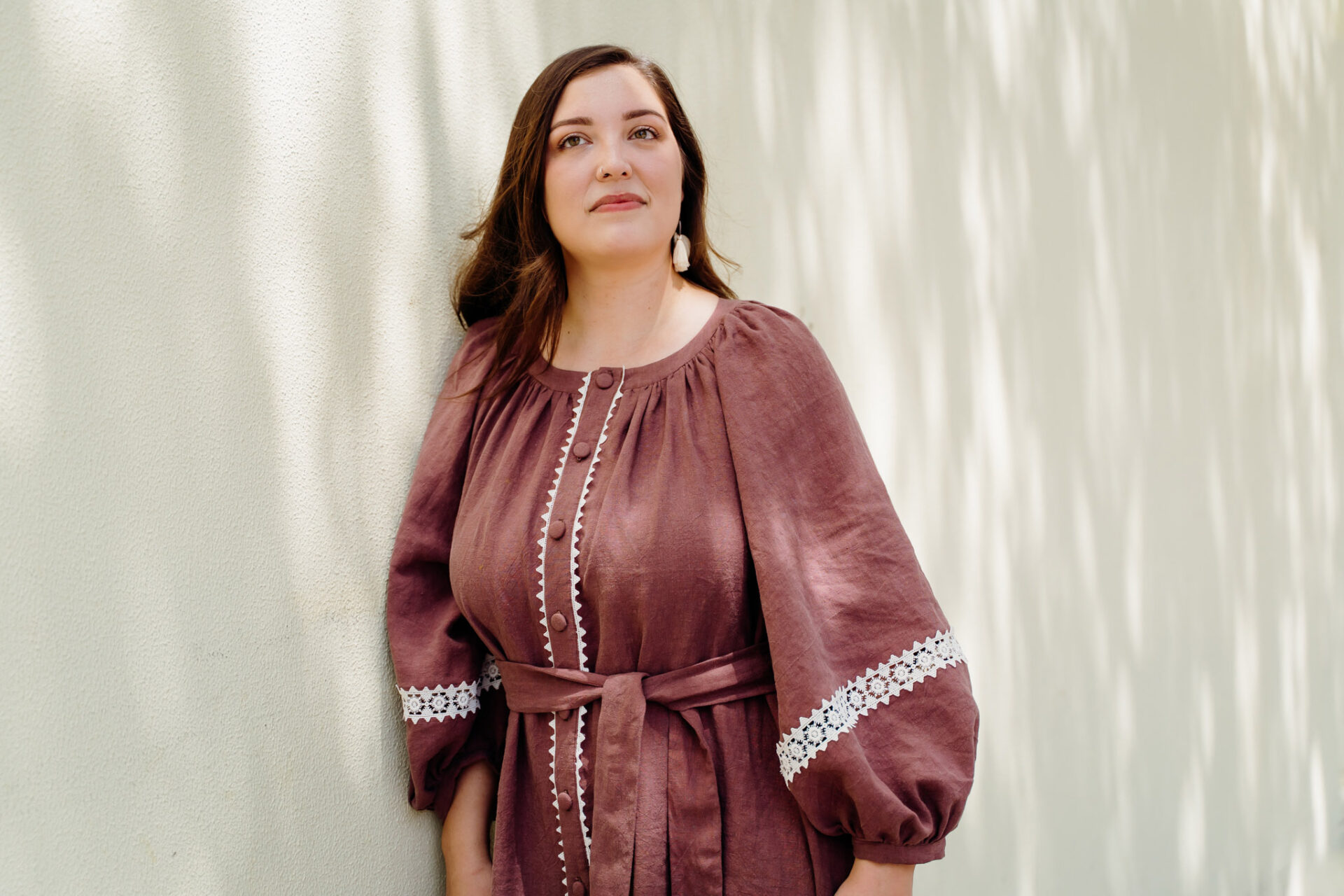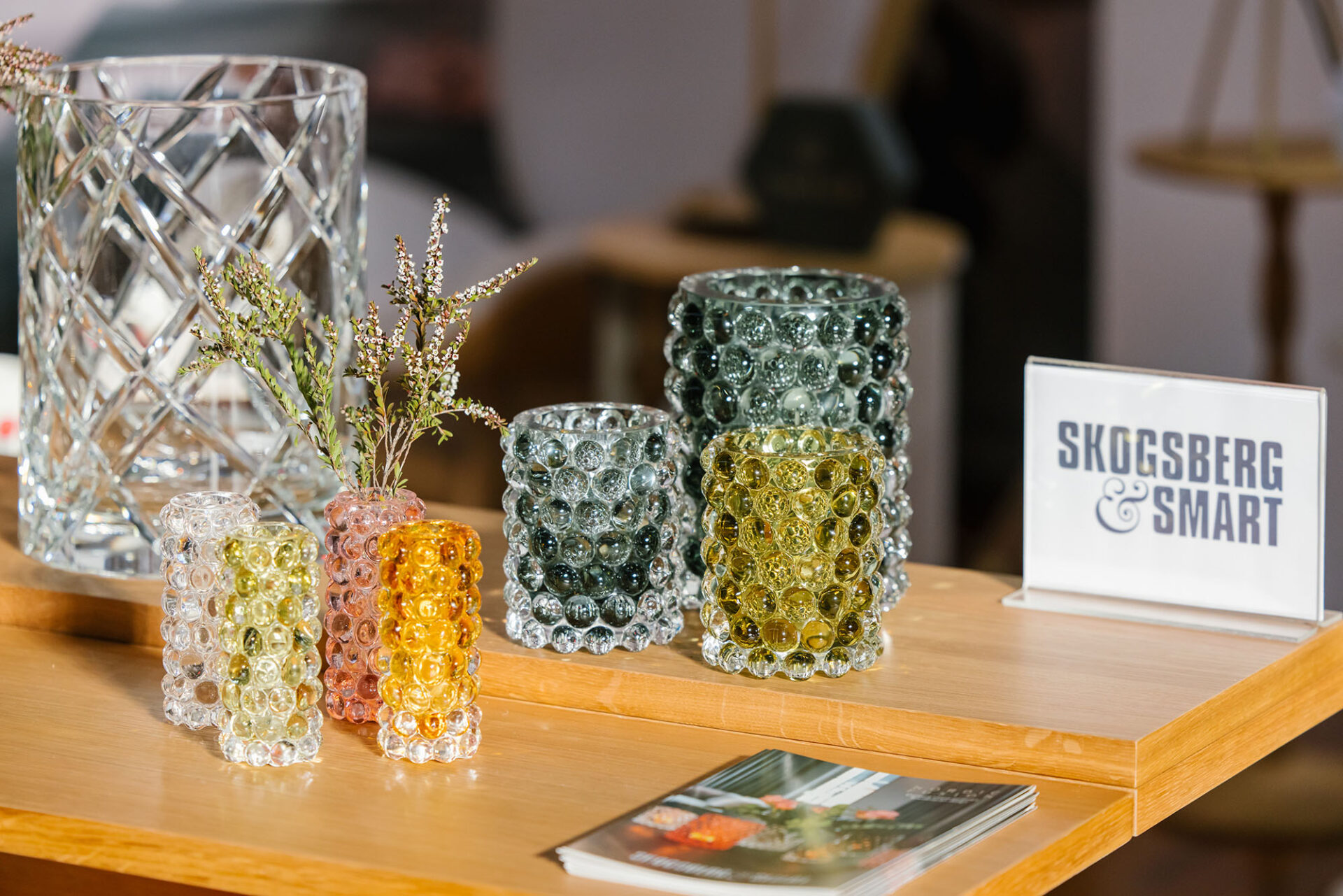Voice, A New Vision: Actioning Solidarity Through Allyship

- Words by Peppermint
words JULIA HEYWARD, ANNIE WARD-AMBLER AND MAX GRIFFIN edited by TEELA REID artwork LAUREN ROGERS
This year will see a referendum called for First Nations constitutional recognition through an Indigenous Voice to Parliament. In Issue 57, our team had the honour of working alongside Wiradjuri and Wailwan lawyer Teela Reid as she penned the feature ‘Voice, A New Vision’.
“The idea to enshrine a First Nations Voice is one of the systemic changes mandated in the Uluru Statement from the Heart: ‘We call for a First Nations Voice to Parliament enshrined in the Constitution.’ That is the invitation the Australian people have overwhelmingly accepted at the heart of the Uluru Statement – to enshrine a First Nations Voice,” Teela writes.
“It invites the Australian people to ‘walk with us’ towards a First Nations Voice and a Makarrata Commission. A Makarrata Commission would supervise a process of treaties and truth-telling. Makarrata is a Yolngu word meaning ‘coming together after a struggle’. This is the vision for a better future and the mandate formulated by a cross-section of the First Nations community.”
As part of Peppermint’s commitment to sharing valuable resources and amplifying First Nations’ voices, over the next few weeks, we will be publishing this feature online in full so it is free for all to access. For 30 years, Arnold Bloch Leibler, a leading Australian law firm, has worked with First Nations peoples, most often pro bono, on matters at the core of Indigenous self-determination resolve. Here, they speak to the power of solidarity in action.
ABL’s Indigenous Solidarity Network (AISN) is a group of lawyers and staff at all levels of the firm, who seek to ensure First Nations’ voices are heard and incorporated in all we do. Our statement of commitment captures these responsibilities and confirms our unequivocal acceptance of the invitation reflected in the Uluru Statement from the Heart to walk together in a movement towards a better future, with the First Nations Voice to Parliament leading the way.
Being a true ally means listening to, and learning from, Indigenous perspectives with humility and open minds; educating ourselves about Australia’s true history; engaging in real action; and self-reflecting.
In the lead-up to the Voice referendum this year, ABL is privileged to be invited by Peppermint to share some insights into our approach to actioning solidarity. For us, being a true ally means listening to, and learning from, Indigenous perspectives with humility and open minds; educating ourselves about Australia’s true history; engaging in real action; and self-reflecting.
READ MORE – Voice, A New Vision: The Process and Principles of a Referendum
Listen and learn
We’ve learned the importance of truly listening with humility to the experiences of First Nations peoples. Relationships of mutual trust cannot even begin to form unless non-Indigenous people are prepared to do that. For us at ABL, as First Nations allies, this means honouring the principles of “free, prior and informed consent” and “nothing about us, without us”.
It is essential we all take time to read the Uluru Statement from the Heart carefully and listen to the overwhelmingly positive perspectives of First Nations peoples on what the Voice means to them, empowering lives and giving agency in relation to decisions that may affect them, for the good of civil society.
Educate ourselves
In ABL’s work alongside First Nations peoples, we know the “more we learn, the less we know”. Nothing can be truer when it comes to the Voice. We all need to continue to educate ourselves and refine our understanding about this once-in-a-lifetime opportunity.
Non-Indigenous Australians, in various ways and by various means, are direct beneficiaries of colonisation.
There is a plethora of valuable resources on the rich history and cultures of First Nations peoples and the ongoing impacts of colonialism and racism. We all have a personal responsibility to undertake this task. In doing so, First Nations’ perspectives must be prioritised. It may lead to an understanding, as it has for us, that non-Indigenous Australians, in various ways and by various means, are direct beneficiaries of colonisation. Non-Indigenous opposition to the Voice must be critically analysed in this context.
READ MORE – Voice, A New Vision: A Chronology of First Nations Action
Take action
True Indigenous solidarity requires focused and strategic action. We all have unique skills and networks to offer to the cause. Get involved. This is a peoples’ movement. As a law firm, in public and in private, our focus will continue to be directed towards advocacy and helping to debunk the false legal arguments being mounted in opposition to the Voice.
Reflect
The pathway to self-determination is always developing, as are the ways non-Indigenous contributions can be made to supporting the Voice. ABL’s pivot in recent years towards the language and an approach of solidarity was the result of self-reflection and feedback.
The pathway to self-determination is always developing.
We’ve learned that for some First Nations peoples, the concept of reconciliation is complex. It is healthy to acknowledge and incorporate better ways of doing things, from the symbolic to the practical – which are inherently interconnected. It helps us to become better, more effective allies.
Peppermint is grateful for ABL’s sponsorship of Teela’s work for this feature through their Indigenous Solidarity Network.
JOIN OUR MAILING LIST
Brighten up your inbox with our not-too-frequent emails featuring Peppermint-related news, events, competitions and more!
explore
More articles
Look, I don’t want to make anyone panic but IT’S DECEMBER!!! If you’re planning to give homemade gifts, you’re going to have to act fast. …
Hang out with us on Instagram
🌻 The Paddington 🌻
This is a much-loved staple, created for Issue 50 in 2021. We love seeing the #PeppermintPaddingtonTop continually popping up in our feeds!
How stunning is our model Elon MelaninGoddessEfon – she told us it was one of the first times she had been asked to come to a shoot with her natural hair. 🌻
We worked with South African patternmaker Sarah Steenkamp of @FrenchNavyNow_ to create this wardrobe essential – the perfect puff-sleeve blouse. Raglan sleeves make it the ultimate beginner sew, plus the gorgeous back buttons let you add your own personal twist.
Pattern via the link in bio! 🪡
Photos: @KelleySheenan
Fabric: @Spoonflower
Model: MelaninGoddessEfon

“In the 1940’s, Norwegians made and wore red pointed hats with a tassel as a form of visual protest against Nazi occupation of their country. Within two years, the Nazis made these protest hats illegal and punishable by law to wear, make, or distribute. As purveyors of traditional craft, we felt it appropriate to revisit this design.”
Crafters have often been at the heart of many protest movements, often serving as a powerful means of political expression. @NeedleAndSkein, a yarn store in Minnesota, are helping to mobilise the craftivists of the world with a ‘Melt The Ice’ knitting pattern created by @Yarn_Cult (with a crochet pattern too), as a way of peaceful protest.
The proceeds from the $5 pattern will go to local immigrant aid organisations – or you can donate without buying the pattern.
Raise those needles, folks – art and craft can change the world. 🧶
Link in bio for the pattern.
Images: @Gather_Fiber @NeedleAndSkein @a2ina2 @KyraGiggles Sandi.204 @WhatTracyMakes AllieKnitsAway Auntabwi2
#MeltTheIce #Craftivism #Knitting #CraftForChange

TWO WEEKS TO GO! 🤩
"The most important shift is moving from volume-led buying to value-led curation – choosing fewer, better products with strong ethics, considered production and meaningful stories. Retailers have real influence here: what you buy signals what you stand for. At Life Instyle, this means using the event to discover and invest in small-scale, planet-considerate brands that align with your values and your customer’s conscience. Consumers don’t need more things; they need better things, and retailers play a key role in selecting, contextualising, and championing why those products matter."
Only two more weeks until @Life_Instyle – Australia`s leading boutique retail trade show. If you own a store, don`t miss this event! Connect with designers, source exquisite – and mindful – products, and see firsthand why this is Australia’s go-to trade show for creatives and retailers alike. And it`s free! ✨️
Life Instyle – Sydney/Eora Country
14-17 February 2026
ICC, Darling Harbour
Photos: @Samsette
#LifeInstyle #SustainableShopping #SustainableShop #RetailTradeEvent

Calling all sewists! 📞
Have you made the Peppermint Waratah Wrap Dress yet? Call *1800 I NEED THIS NOW to get making!
This gorgeous green number was modelled (and made) by the fabulous Lisa of @Tricky.Pockets 🙌🏼
If you need a nudge, @ePrintOnline are offering Peppermint sewists a huge 🌟 30% off ALL A0 printing 🌟 when you purchase the Special Release Waratah Wrap Dress pattern – how generous is that?!
Head to the link in bio now 📞
*Not a real number in case that wasn`t clear 😂
#PeppermintWaratahWrapDress #PeppermintPatterns #SewingPattern #WrapDress #WrapDressPattern

8 Things to Know About January 26 - from @ClothingTheGaps:
Before you celebrate, take the time to learn the truth. January 26 is not a day of unity it’s a Day of Mourning and Survival for Aboriginal and Torres Strait Islander peoples.
It marks the beginning of invasion, dispossession, and ongoing colonial violence. It’s time for truth-telling, not whitewashed history.
Stand in solidarity. Learn. Reflect. Act.
✊🏽 Blog written by Yorta Yorta woman Taneshia Atkinson.
🔗 Link in bio of @ClothingTheGaps to read the full blog
#ChangeTheDate #InvasionDay #SurvivalDay #AlwaysWasAlwaysWillBe #ClothingTheGaps

As the world careens towards AI seeping into our feeds, finds and even friend-zones, it`s becoming increasingly hard to ignore.
We just wanted to say that here at Peppermint, we are choosing to not print or publish AI-generated art, photos, words, videos or content.
Merriam-Webster’s human editors chose `slop` as the 2025 Word of the Year – they define it as “digital content of low quality that is produced usually in quantity by means of artificial intelligence.” The problem is, as AI increases in quality, it`s becoming more and more difficult to ascertain what`s real and what`s not.
Let`s be clear here, AI absolutely has its place in science, in climate modelling, in medical breakthroughs, in many places... but not in replacing the work of artists, writers and creatives.
Can we guarantee that everything we publish is AI-free? Honestly, not really. We know we are not using it to create content, but we are also relying on the artists, makers and contributors we work with, as well as our advertisers, to supply imagery, artwork or words created by humans. AI features are also creeping into programs and apps too, making it difficult to navigate. But we will do our best to avoid it and make a stand for the artists and creatives who have had their work stolen and used to train AI machines, and those who are now losing work as they are replaced by this energy-sapping, environment-destroying magic wand.
Could using it help our productivity and bottom line? Sure. And as a small business in a difficult landscape, that`s a hard one to turn down. We know other publishers who use AI to write stories, create recipes, produce photo shoots... but this one is important to us.
`Touch grass` was also a Merriam-Webster Word of the Year. We`ll happily stick with that as a theme, thanks very much. 🌿

















